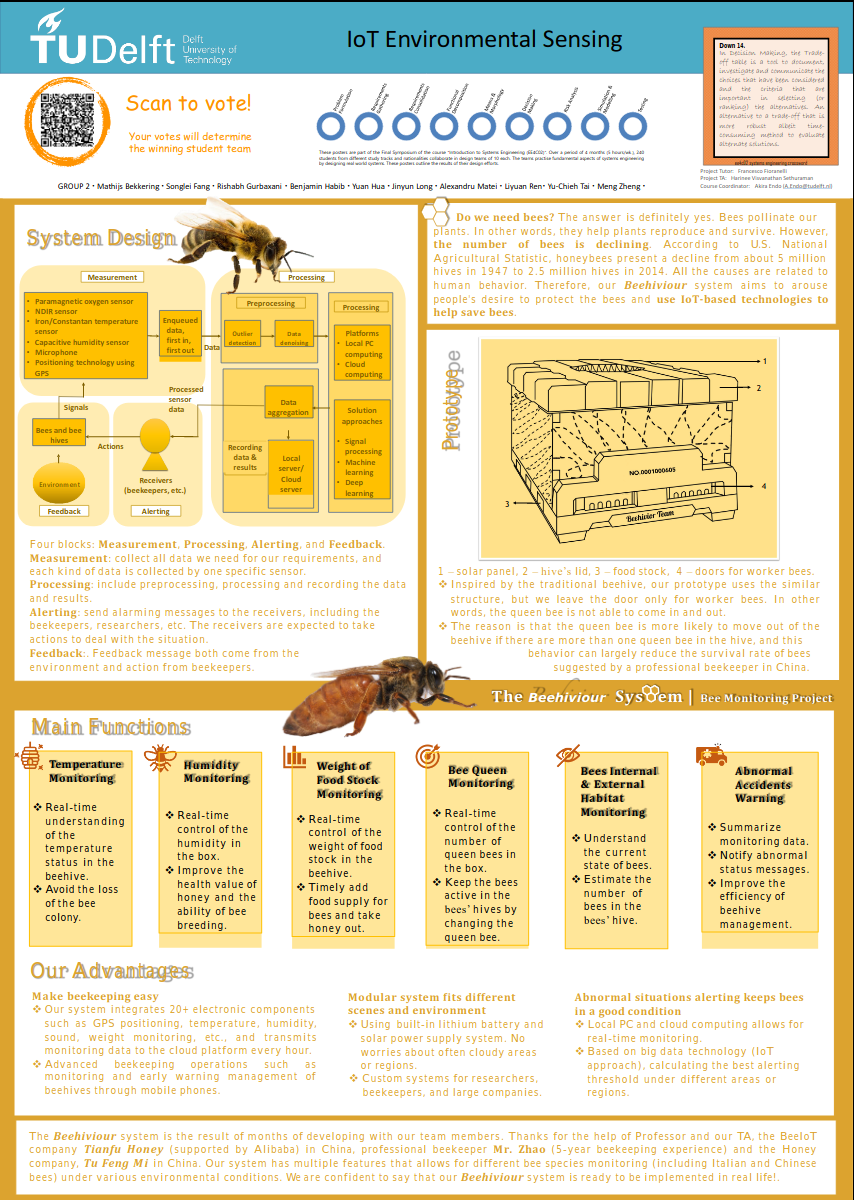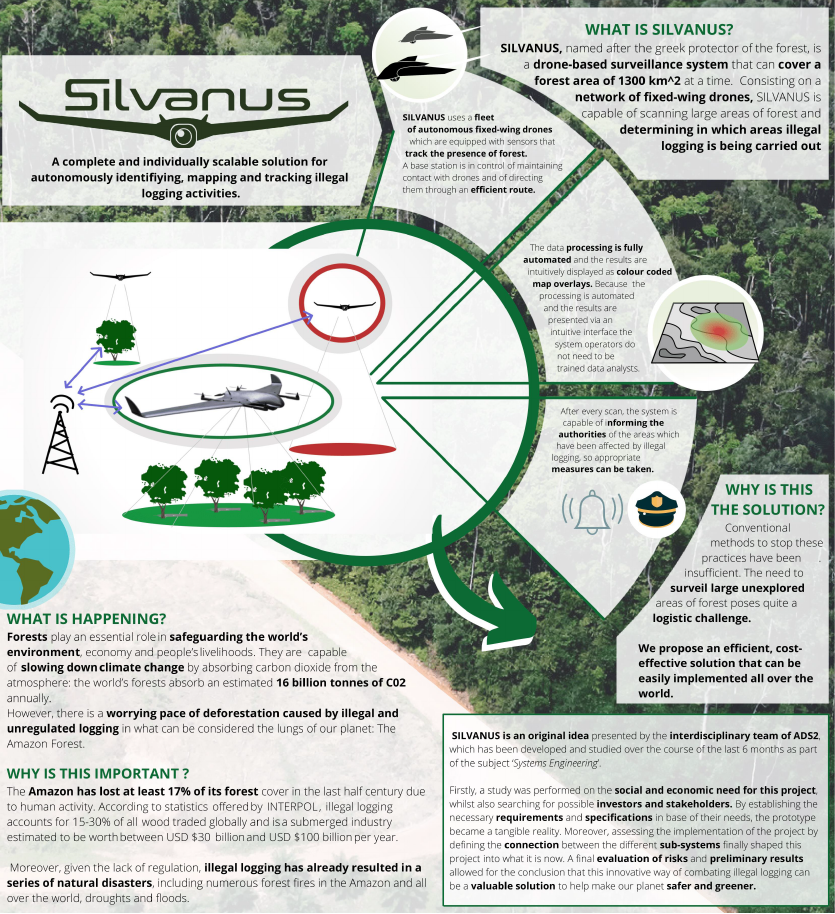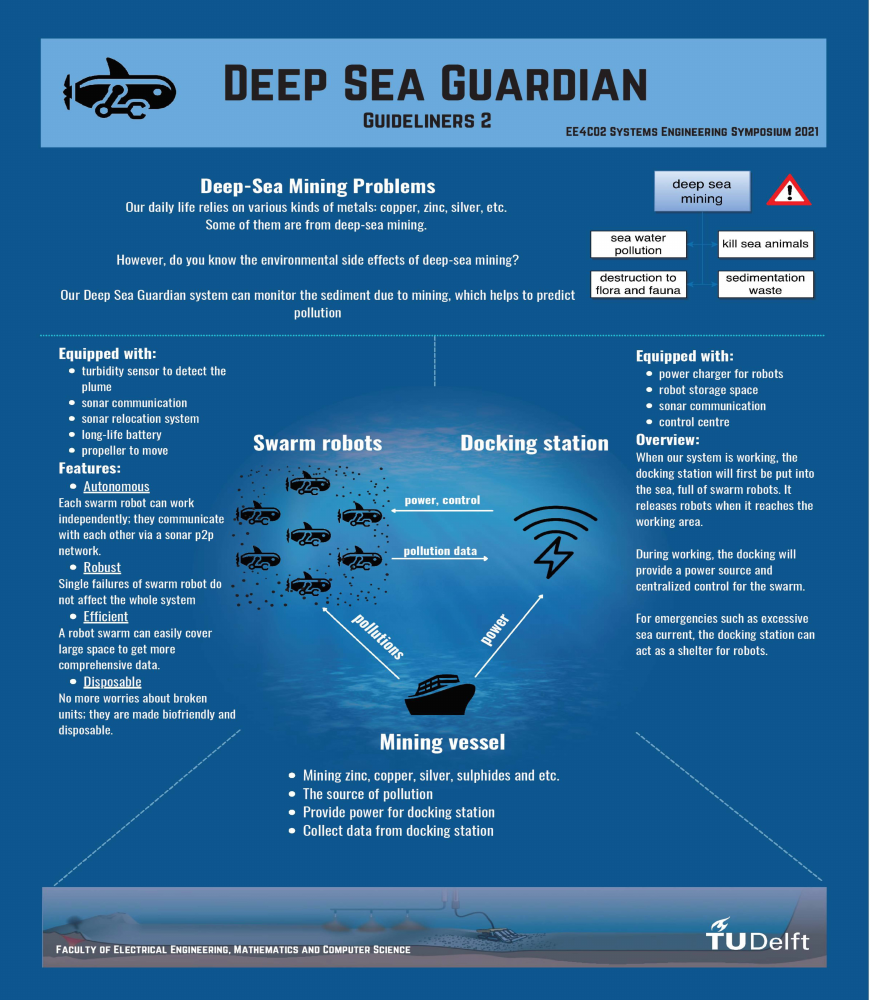The story behind the posters in Mekelpark
If you were on campus between 14 and 18 June, you cannot have failed to see the long series of posters in Mekelpark showing the broad spectrum of Systems Engineering. From fast food delivery drones to jellyfish alarms and smart beehives. But where did the posters come from?
The entire campus as jury
In brief: the posters are the final presentation for the Systems Engineering course. A course in which more than 240 Master's students from all over the university come together to design large-scale, complex systems. And as far as the examination is concerned, the idea of using posters is nothing new. Certainly not for Akira Endo, who has been the course coordinator for many years. Every year he and the seven project tutors (supported by motivated teaching assistants) let their student teams present their research in the entrance hall of Building 36, which always results in a lively mix of students and teachers, and of questions and answers. But just like so many routine events in the coronavirus pandemic, this fixed point in the academic year was turned upside down.
'The idea to organise it outside this time came about very organically' explains Akira, 'we were very happy with this form of examination, so we wanted to hold on to it. We find that with this kind of open presentation, students are far more aware of what their fellow students are working on, as well as what other research possibilities are available. This gives the students extra motivation to make an interesting poster, so we had every confidence that the posters would be able to hold their own for the larger audience of the whole campus.'
An entrepreneurial spirit
An exciting step, especially for the students, because in addition to the usual jury, this year the posters were judged by everyone who happened to pass by. Often literally: the public could vote for their favourite poster by scanning the QR code printed at the top of the poster. 'That really awakened the entrepreneurial spirit in the students,' adds Raj Thilak Rajan who supervised three groups, 'I found this year’s batch of students to be more creative, enterprising, and motivated to carry out societal relevant research. For instance, one of my teams, proposed an innovative food delivery service using drones to replace the existing delivery scooters. I was particularly impressed on how they combined their engineering expertise with market research, to pitch a final solution which could be a real start-up one day.'
All of the posters were of a surprisingly high quality. And thanks to the good weather they were seen by a lot of people, which resulted in Akira regularly receiving interesting feedback from people in completely different parts of the university. It also formed the perfect opportunity for the student teams to meet each other, to not just see their own posters, but particularly those of the other teams. Akira: 'It was actually very touching to see how inspirational the students found it – after a long year of sitting inside and attending lectures online – that they could finally meet up with their fellow students. A university cannot exist without that sort of contact; we all benefit from it.'
The symposium was kindly supported by the education and communications sections of the faculty of EEMCS, as well as the campus and real estate department of TU Delft.
Header image
Students of project group "A Safer World" with tutor dr. Maria Sovago.
Public winner: a "smart bee hive" that automatically keeps track of the condition of a bee colony. Is there enough food, is the temperature and humidity ok, or have there been accidents? In all cases the hive will take action itself, without help from the beekeeper. An important boost for the bee population.
The favourite among students: "Silvanus", an autonomous swarm of drones that can monitor forest areas of up to 1300km2 . When the drones spot illegal logging, they immediately alert the authorities so they can check the situation on the ground. To avoid false alarms, Silvanus manages a complex and continuously up-to-date dataset of the forest area.
The jury prize: a swarm of robots that detects illegal deep sea mining. This involves a lot of work: the drones have to take account of the currents, and of course they must not lose each other halfway. That is why the students developed a floating docking station for the drones, where they can also recharge. And if something goes wrong, don't worry: the drones are made of biodegradable material.



